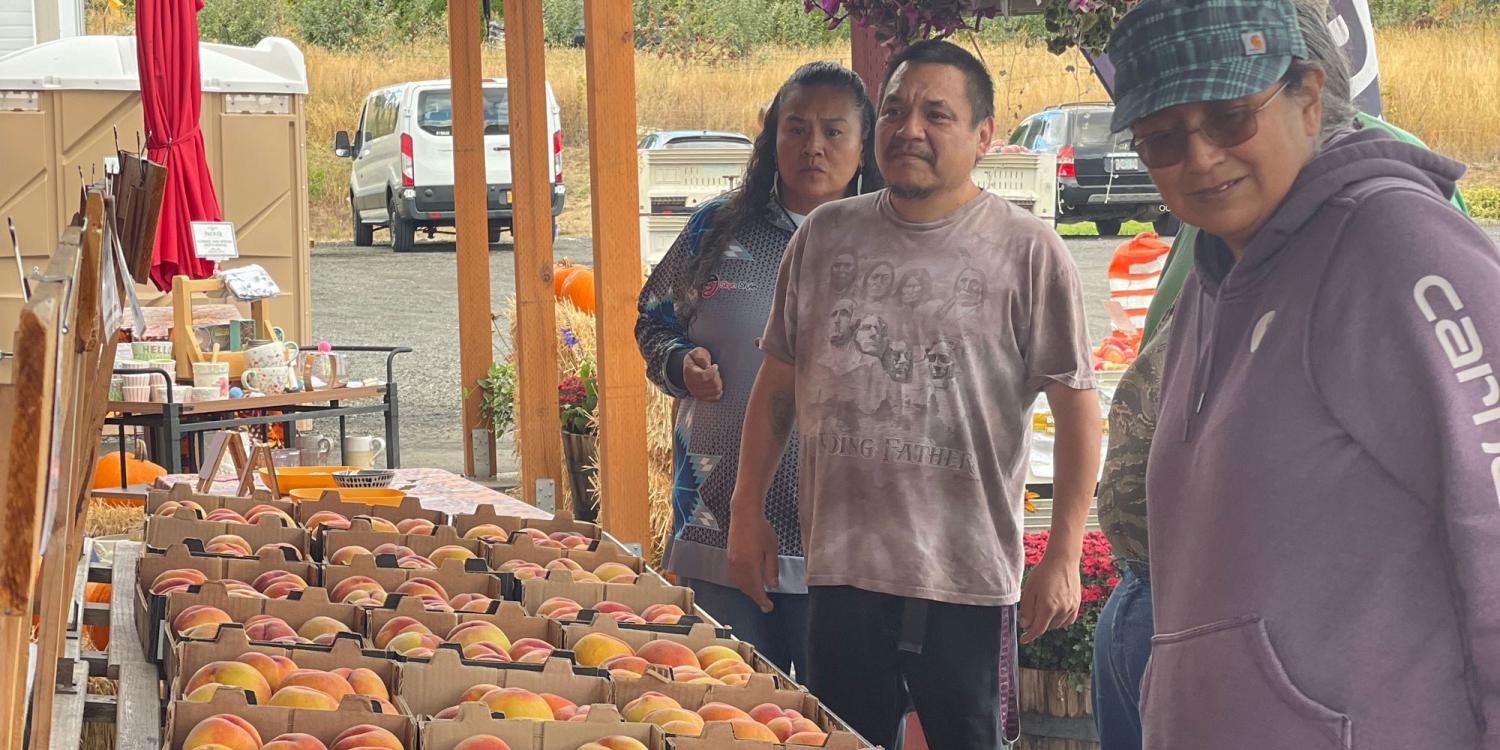
The summer of 2022 brought high temperatures, high gas prices, and high food prices to Oregon. In the Confederated Tribes of Warm Springs community, where food preservation is a means of food security, those higher prices meant many community members that preserve fruits like apples and pears were going to go without.
For several years each fall, Oregon State University Extension Service in Warm Springs provided free transportation to Warm Springs tribal members to visit orchards and purchase fruit in bulk in Hood River County. The Hood River Valley has a rich agricultural heritage and features 28 on-the-farm fruit stands. The OSU Extension Fruit Loop Tour also served as an educational opportunity, as classes on canning fruit were held following the tour for participants and the Warm Springs community. The transportation was funded through a grant from the U.S. Department of Agriculture National Institute of Food and Agriculture’s Federally Recognized Tribal Extension Program for 2022.
COVID-19 restrictions made it impossible for the tour to be held in 2020 and 2021. Various modifications were tried to maintain the connections between the Hood River orchards and the Warm Springs community. One was having community members pre-order produce, then an Extension team member would drive to Hood River to pick up the orders. This variation had some success, but it lacked the community-building aspect for participants that was as important as the food itself.
In September 2022, OSU Extension in Warm Springs brought the in-person tour back with two OSU vehicles to transport participants and the produce they purchased. Fourteen Warm Springs community members, primarily elders, went on the tour. The canning classes held afterward helped participants refresh their skills and get caught up on any changes to methods. The classes also strengthened Warm Springs’ connection to Extension as a trusted resource they can turn to when questions come up as they preserve different foods throughout the year.
One elder on the tour shared that, due to unreliable transportation, they were unable to go out in the spring to forage for wild roots. The Extension team views this as an opportunity to expand the Fruit Loop Tour to other seasons to make gathering traditional foods more accessible for the community as well as sharing relevant preservation information for these foods.